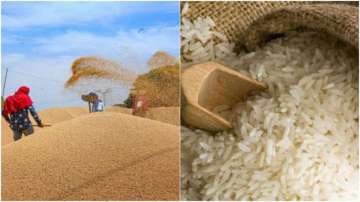India is reportedly in talks with Russia to import 8 to 9 million tonnes of wheat to help reduce the prices of the commodity in the domestic market, reported TASS news agency citing The Economic Times.
As per reports, the Indian government is mulling the possibility of imports through private trade and government-to-government deals. Despite India needing only 3 to 4 million metric tonnes of wheat to plug a shortfall, it is considering a bigger import to have a higher impact on prices.
A decision can be expected to be announced in a few weeks to ease the ongoing inflation. India had last purchased 5.3 million tonnes of wheat from Russia in 2017.
Wheat prices in India
It should be mentioned here that the country's wheat production had fallen to 107.74 million tonnes in the 2021-22 crop year (July-June) from 109.59 million tonnes in the previous year due to heat waves in a few growing states. Consequently, the government's procurement fell sharply to 19 million tonnes this year from around 43 million tonnes last year. However, in 2022-23, wheat production is estimated to rise to 112.74 million tonnes on higher acreage and better yield. Wholesale wheat prices in India rose by about 10% to a seven-month high in August due to limited supplies.
As inflation is soaring high in the country, the Union Government of India declared earlier this month that it will sell additional 50 lakh tonnes of wheat and 25 lakh tonnes of rice from the central pool in the open market in order to check the price rise.
Food Secretary Sanjeev Chopra acknowledged that there has been a steep increase in prices of wheat and rice recently. "The government has decided to offload 50 lakh tonnes of wheat and 25 lakh tonnes of rice under the Open Market Sale Scheme (OMSS)," he told reporters.
Earlier on August 4, Chopra said wheat prices have risen, and the government is exploring all alternatives, including lowering import duties, to stem the surge. In the case of rice, he said India has so far received a request from Bhutan for 80,000 tonnes of rice supply on a government-to-government basis.
Last year, the government banned wheat exports to boost domestic availability and rising prices in the retail markets. It has been offloading wheat stocks to flour millers and other traders in the open market to control the prices of wheat and flour.
ALSO READ | Govt to sell additional 50 lakh tons wheat, 25 lakh tons rice in open market to contain price rise
Latest World News

